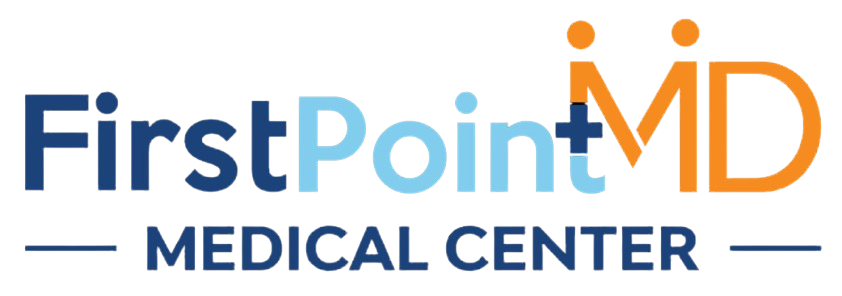When it comes to maintaining long-term health, proper medication management is one of the most important factors. For patients with chronic conditions or multiple prescriptions, keeping track of medications can be overwhelming. That’s where medication management programs come in—designed to improve patient safety, prevent missed doses, and ensure treatments deliver the best possible outcomes.
At First Point MD, our team focuses on personalized Primary Care and medication management programs to give patients peace of mind while helping them stay on track with their health goals.
Why Medication Management Programs Are Essential
The reality is that millions of Americans struggle with medication adherence. Studies show that nearly 50% of patients do not take their medications as prescribed, leading to avoidable hospitalizations, worsening conditions, and increased healthcare costs.
Medication management programs exist to:
-
Ensure accuracy in prescriptions and dosages.
-
Prevent harmful drug interactions between multiple medications.
-
Support adherence by reducing missed or late doses.
-
Identify and manage side effects before they become dangerous.
-
Improve overall treatment success for chronic and acute conditions.
By addressing these challenges, these programs play a vital role in keeping patients safe and healthy year-round.
Key Components of Medication Management Programs
Effective programs go far beyond handing out prescriptions—they focus on education, monitoring, and ongoing patient support. At First Point MD, our medication management programs include:
1. Comprehensive Medication Reviews
Every patient’s full prescription list is carefully reviewed to check for:
-
Duplicate prescriptions.
-
Potential drug interactions.
-
Opportunities to simplify medication schedules.
2. Patient Education and Counseling
Patients often leave the pharmacy with limited understanding of their prescriptions. We provide:
-
Clear instructions on how and when to take each medication.
-
Information on possible side effects and what to do if they occur.
-
Guidance on lifestyle habits that support medication effectiveness.
3. Side Effect Monitoring
Ongoing monitoring ensures that patients feel safe and comfortable with their prescriptions. Adjustments can be made quickly if symptoms develop.
4. Medication Adherence Support
Our team helps patients build routines that make it easier to stay consistent with their medications, whether through pill organizers, digital reminders, or synchronized refills.
5. Care Coordination
When specialists are involved, we ensure all providers are on the same page. This reduces risks of conflicting prescriptions and ensures continuity of care.
The Role of Primary Care in Medication Management
Primary Care providers are at the center of effective medication management programs. They serve as the main point of contact for reviewing prescriptions, monitoring health conditions, and coordinating care. At First Point MD, our providers focus on ensuring that patients not only receive the right medications but also have the tools and confidence to take them safely.
Benefits for Patients with Chronic Conditions
Patients with chronic illnesses such as diabetes, hypertension, asthma, or heart disease often rely on multiple daily medications. Medication management programs can help by:
-
Reducing the complexity of daily regimens.
-
Ensuring treatments are effective and up to date.
-
Preventing serious health risks caused by missed doses or side effects.
This proactive approach improves quality of life and long-term health outcomes.
Technology in Medication Management Programs
Modern tools have transformed the way patients manage prescriptions. Programs often integrate:
-
Medication reminder apps for smartphones.
-
Smart pill bottles that track when doses are taken.
-
Automated refill services through local pharmacies.
-
Telehealth check-ins for easy access to providers.
These innovations make it easier for patients to stay consistent and connected with their care team.
Simple Tips to Improve Medication Adherence
Along with professional support, patients can adopt simple habits that make a big difference:
-
Set alarms or phone reminders.
-
Keep medications in a visible location.
-
Use a weekly pill organizer.
-
Take prescriptions with regular routines, such as meals or bedtime.
-
Ask for help from family members or caregivers if needed.
Conclusion: A Safer, Healthier Future with Medication Management Programs
Medication management programs are not just about organizing pills—they are about protecting health, preventing risks, and improving lives. By working closely with a dedicated Primary Care team at First Point MD, patients gain peace of mind knowing their medications are safe, effective, and tailored to their needs.
With the right support, patients can stay healthy, avoid unnecessary hospital visits, and feel confident in managing their daily routines.


